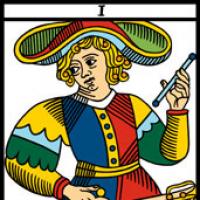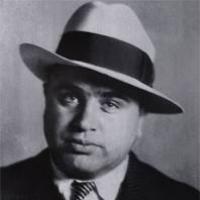Ujumbe: 43
Lugha: English
andogigi (Wasifu wa mtumiaji) 22 Juni 2009 3:44:30 alasiri
I honestly don't think she wrote anything disrepectful about Esperanto in the book. The only slight, imagined in my opinion, would be to say that she gave us very little attention. She give a lot more attention to Lojban and to Klingon than she does to Esperanto. I'm not sure why, although the stories of both these languages is pretty interesting. She says that Esperanto has not become a lingua franca and, therefore, has failed to meet Zamenhof's dream. She also says that Esperanto seems to have promoted peace and harmony among the few people who use it.
I found the book very interesting and would recommend it to anyone interested in Conlanging. I didn't note a great deal of condescending remarks towards conlangs. She does give some negative opinions about certain conlangers, but for reasons that she readily explains having more to do with their actions than their languages. On the contrary, her opinion seems to be one of admiration towards people who put a lot of work into something towards which they can expect little reward.
Miland (Wasifu wa mtumiaji) 22 Juni 2009 5:37:33 alasiri
andogigi:She give a lot more attention to Lojban and to Klingon than she does to Esperanto.How dare she!
andogigi:her opinion seems to be one of admiration towards people who put a lot of work into something towards which they can expect little reward.Better than nothing, I guess.
russ (Wasifu wa mtumiaji) 23 Juni 2009 8:05:11 asubuhi
Wilhelm (Wasifu wa mtumiaji) 23 Juni 2009 4:19:53 alasiri
tommjames:I think what Chomsky means is this:
That reminds me of when Noam Chomsky declared Esperanto to be "not a language"
A language is not a set of rules on a piece paper. Whatever a word or language is, you surely won't find it in a dictionary, or grammar.
The same linguistic input given to a dog or chimp won't produce language, yet given to a child produces something wonderous. So whatever language is, it must be located in 'us' not in a grammar or whatever.
This is what he means when he says esperanto is not a language. Obviously he recognizes that there is a group of people able to communicate using a shared set of rules and what-not.
But...I could be wrong....
Miland (Wasifu wa mtumiaji) 24 Juni 2009 10:50:35 alasiri
Zamenhof wrote of the discovery of this inner 'spirit' of Esperanto which, I would say, helps to prove that Chomsky was wrong:
`..mi rimarkis, ke la lingvo ricevas sian propran spiriton, sian propran vivon, la propran difinitan kaj klare esprimitan fizionomion, ne dependantan jam de iaj influoj. La parolo fluis jam mem, flekseble, gracie kaj tute libere, kiel la viva patra lingvo.'
I translate:
'I noticed, that the language had acquired its own spirit, its own life, its own defined and clearly expressed structure, not dependent on any kind of outside influence. Speech already flowed by itself, flexibly, gracefully and altogether freely, like one's first language.
That said, language must have a structure; I would say that a communal structure for communication, formalised as rules in the case of Esperanto, are a `necessary but not sufficient' condition for a language.
nutella23 (Wasifu wa mtumiaji) 30 Desemba 2010 4:40:54 alasiri
The book in general is not really that great - the other artificial languages she focuses on don't really interest me. But to me it at least had a positive effect.
yugary (Wasifu wa mtumiaji) 4 Januari 2011 5:57:06 asubuhi
chicago1 (Wasifu wa mtumiaji) 4 Januari 2011 9:14:32 alasiri
Last time I checked no one was ever sent to a Nazi concentration camp for speaking klingon. (And even if it existed then, probably a mental asylum or the circus, but not a concentration camp.)
Mustelvulpo (Wasifu wa mtumiaji) 4 Januari 2011 10:23:32 alasiri
Balbutanto (Wasifu wa mtumiaji) 5 Januari 2011 1:54:09 asubuhi
tommjames:That reminds me of when Noam Chomsky declared Esperanto to be "not a language". I guess that depends on how you define language. Perhaps Esperanto is something else (according to his models anyway), but I think it serves as a useful reminder that linguistics at its most "advanced" can often amount to little more than dogma. I for one take these guys with a pinch of salt.While studying translation, years ago, I took this course in linguistics where the lecturer squarely said that according to linguistics, translation was absolutely impossible
 I dropped out of the course in earnest...
I dropped out of the course in earnest... 







